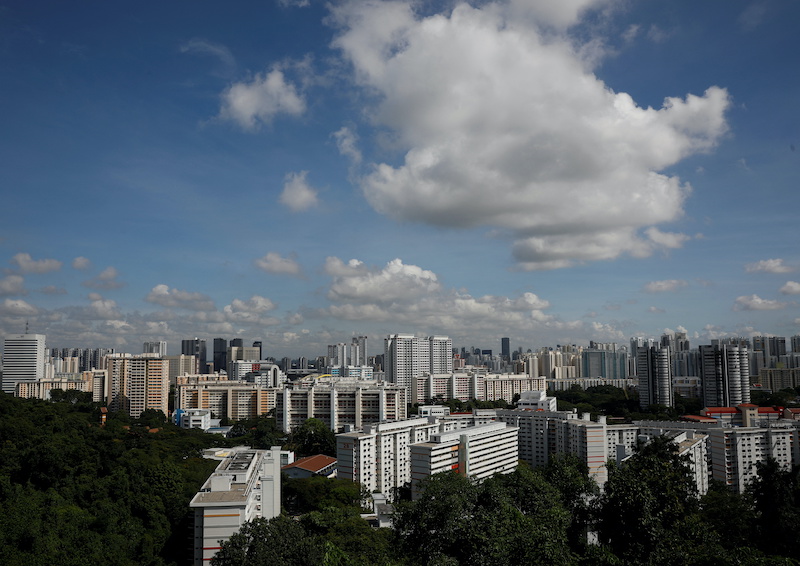Atar Sandler arrived in Singapore in 2019, seizing the opportunity to live in a buzzing global city that is also a convenient base to jet off to more exotic locales nearby.
But after two years of mask-wearing, socialising in small groups and travel restrictions to combat the Covid-19 pandemic, the Israeli human resources professional packed her bags for New York with her husband and children this month.
“It’s been like this for so long. And it doesn’t feel like anything’s going to change here,” said Sandler. “Life is very, very easy here. (But) is it worth it to live such a convenient life without being able to see family, friends, without being able to travel?”
Risk-averse Singapore is trying to balance its approach to living with Covid-19 – aiming to protect people in the densely populated island from the disease while reopening its economy and borders to maintain its reputation as a hub for capital and talent.
Companies and expatriate professionals have long been drawn to the business-friendly country, one of the safest places in the world with a high quality of living, political stability, a skilled workforce, ease of travel and low taxes.
But Covid-19 has prompted soul-searching among many relatively affluent expats in Singapore, where foreigners workers make up a fifth of the 5.5 million population.
The Great Resignation
Some compare its strict Covid-19 rules with more freedom back home or bemoan the inability to travel freely to visit family, while others joined the “great resignation” wave seen around the world.
For Sandler, it was “devastating” that giving birth to her daughter in the middle of the outbreak meant her family did not meet her second child for a year.
Singapore has continued to attract new investment and foreign talent during the pandemic, but a drop in foreigners sent its population down by the most since 1950 – 4.1% lower year-on-year as of June 2021.
That is mostly due to fewer numbers of lower-wage workers, typically employed in construction and marine services.
But even the number of employment passholders, or professionals earning at least S$4,500 ($3,350) monthly, fell nearly 14% from 193,700 in December 2019 to 166,900 in June 2021.
Transient Expatriate Life
Expatriate life is, by nature, transient and many left because companies cut costs and jobs. As foreign workers departed, border restrictions meant businesses were unable to bring in replacements from overseas easily.
But for Filipina Nessa Santos, who worked in the city-state for a decade, and her British husband, the pandemic was the push they needed to move from Singapore, a tiny urban island with no hinterland, to the English countryside with their children.
“Even though our jobs were good, it was also very stressful and very demanding,” said Santos. “We didn’t want that kind of lifestyle anymore.”
And Chris Anderson, who moved to Singapore in 2019 from Hong Kong, has returned home to the United States to join a tech start-up. He was perturbed by rules last year that restricted foreigners from returning to the city-state despite being residents.
“You leave the country, you’re not a priority to get back in… that’s always at the back of your mind,” Anderson said.
Trickle from Hong Kong
Still, Singapore has been making it easier for travellers to enter and is looking more attractive to expatriates living in rival financial centre Hong Kong, which has far stiffer rules due to its zero-Covid strategy.
There has been a “trickle” of movement from Hong Kong into Singapore, said Lee Quane, regional director at relocation firm ECA International.
He expects expatriate outflows from Singapore to outpace inflows through 2022, citing tighter foreign worker policies and wariness over potential curbs due to virus variants.
The net decline in the non-resident workforce slowed in 2021, with a small net gain in November, the manpower ministry said in a written response to parliamentary questions last week.
Barring unforeseen circumstances, the government, which has stressed the importance of staying open, expects “to hold the course” of calibrated easing in border restrictions.
“The government works hard to ensure that businesses and individuals continue to choose Singapore because of our openness, rule of law, and consistency in policies,” it said.
Companies continue to bring in key talent and receive approvals for work passes, according to Hsien-Hsien Lei, the CEO of the American Chamber of Commerce in Singapore. “Sure, things aren’t perfect. But, Singapore, from a relative point of view is a great place to live and do business,” Lei said.
- Reuters with additional editing by Jim Pollard
ALSO READ:
Singapore Must Plan for More Flexibility – Straits Times
Singapore Surprises by Tightening Policy to Curb Inflation
Singapore Tourism Data Underscore Hurdles – Nikkei
























